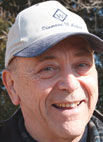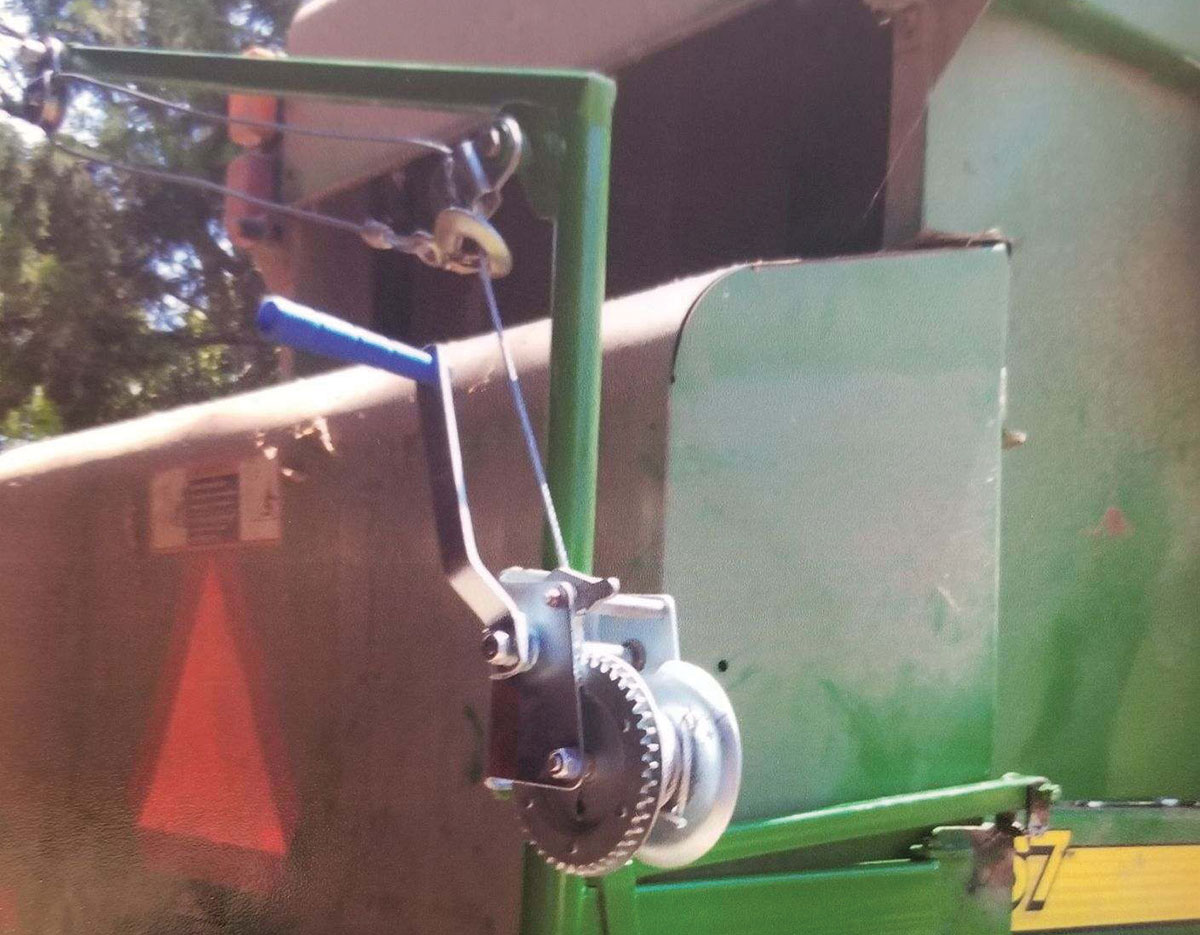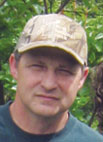
The Diamond W Angus farm is a five generation farm, bought in 1933 by Gail Weisenbach's grandparents, Tony and Minnie Price. When Jack and Gail Weisenbach were married in 1977; they started out bottle feeding 10 baby calves. They raised commercial cattle until 2004, and then changed to registered Angus cattle.
Today, Ted, their son, and grandsons, EJ and Noah, help at the farm, just like Jack and Gail always wanted. Ted grew up working on this farm and loved it, even as a youngster he loved helping in the hay, and working the cattle with his dad. Ted and Trish, Ted's wife, have a farm of their own about an hour away from his mom and dad’s farm. He and the two boys come up on the weekends and help work his dad's place. EJ and Noah seem to enjoy it as much as their dad does. The Weisenbachs is a family operation, to say the least.
The Weisenbachs weigh their heifers to find out which ones are ready to breed. Activities like this will be a family affair, with the younger boys working just like the adults. On a recent work day, EJ, the oldest, was working the gate, and Noah, the youngest, was busy with his bull stick, running them up through the chute. Jack and Ted AI their cows and first time heifers. Jack’s goal is to produce calves with good traits, and better carcass meats.
Ted had the idea, "by putting a Hereford bull in a week after the cows were AI’d, you could tell which cows didn’t take by the Black Baldies that were born."
Jack explained, "AI calves sell better than the natural-bred calves."
He thinks that perceptions are, AI comes from a registered bull, and therefore AI cattle will be first choice in the market.
Jack said it seems the cattle market is changing. "More farmers are starting to go with registered cattle, than commercial because of the money. The money is better in quality carcass, rib eyes and the meat cuts you get in registered cattle."
Jack said the best tip he ever received when it comes to the cattle business was if you can’t take care of what you have, don’t do it. In other words, if you can’t do it right, don’t do it.
Jack explained this further saying, "First, put a pencil to it and do a lot of planning. Think it through from every vantage point, and go for it."
Some of the difficulties the Weisenbachs have run into are high feed costs and fertilizer. To offset this challenge, they use chicken litter, and they test their soil to make sure to give the pasture what it needs. It's because of these type of diligent efforts, Jack has won the cattleman’s hay show two years in a row in the past.
Jack said he watches his EPD’s very closely, and changes his bulls out every three years. They ear tag their cattle, and he also retains his best heifers. He rotates his pastures every 20 days depending on the size of the pasture.
Gail said sometimes they would shorten the fence in the pasture to maximize the grass. "The cattle will spot graze and waste grass so we shorten the fence and let it out as they clean it all up," she explained.
The Weisenbachs try to make their cattle gain on grass, but when they feed it's a 15 percent corn and wheat meal.
"Not a complete feed, we buy it on a pallet already mixed," Jack said.
Another important issue with Jack is the water. They only give their cattle fresh water, from a well or city water. Jack said he tries to keep them away from the ponds and creeks; he thinks it affects the meat.
Jack and Gail belong to the National Cattlemen's Association, the Arkansas Cattlemen's Association, the American Angus Association, the West Central Arkansas Angus Association and also the Oklahoma-Angus Association.
Jack said the farm offers a good quality of life, a life shared with his family. Could there be any better?







